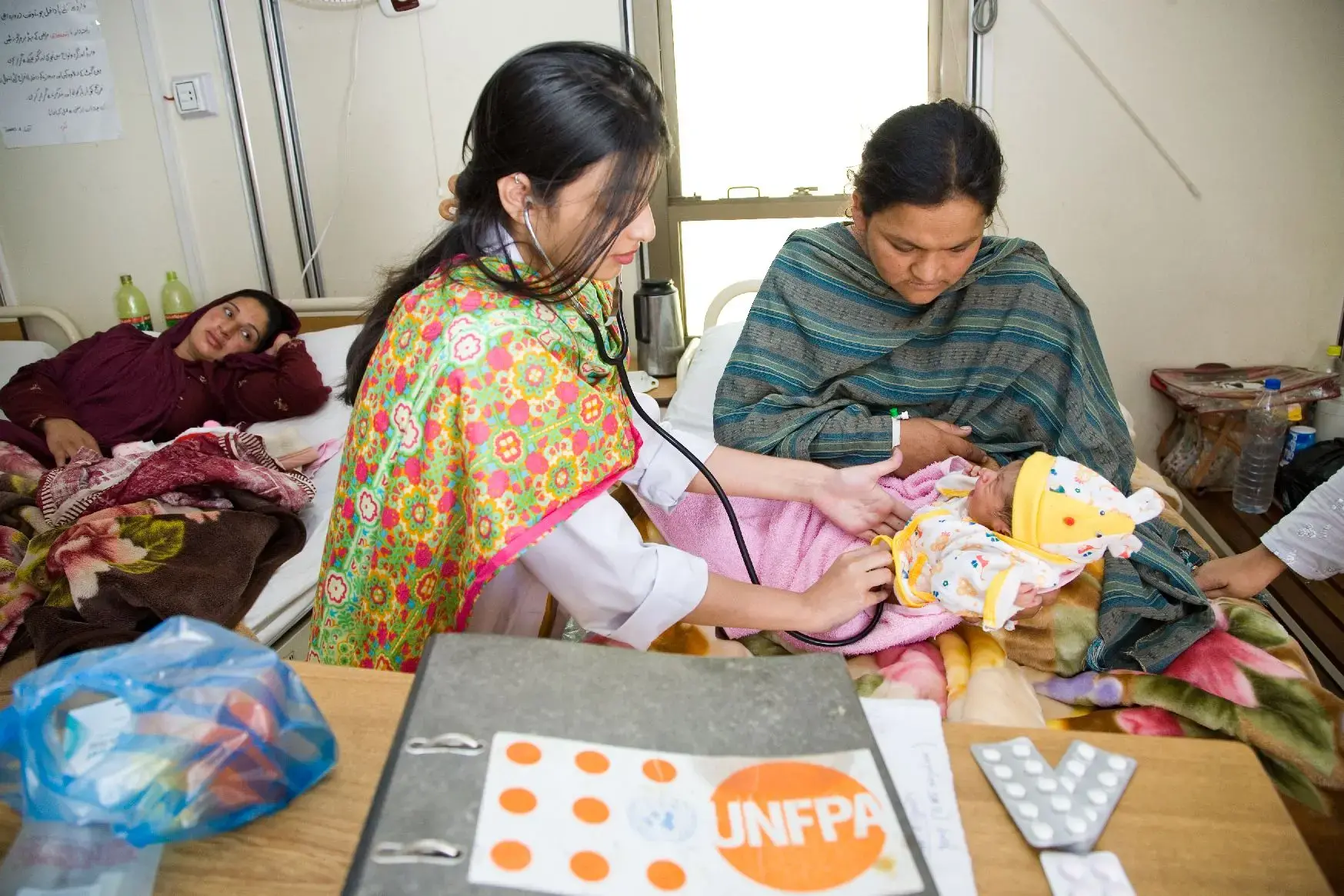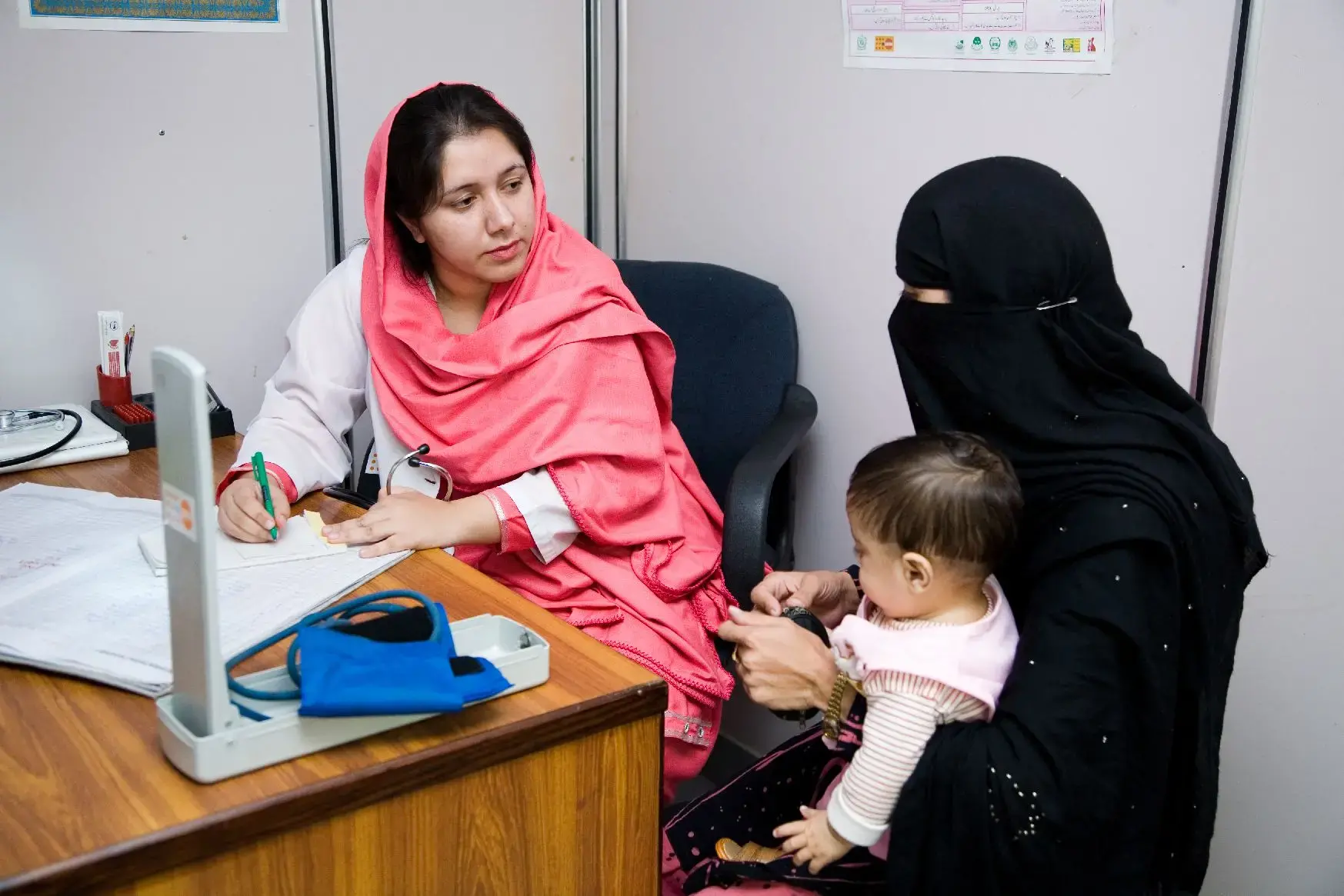Pakistan has one of the highest maternal mortality ratios in South Asia. Although rural-to-urban migration is high, the majority of births (70%) still take place at home in the lowest quintile (PDHS 2012-2013), making the role of midwives crucial in providing life-saving services to those most vulnerable.
Evidence shows that it is possible to accelerate the decline of maternal mortality and provide quality care through the provision of the midwifery model of care. Nearly one in five (15%) women are likely to develop complications that may require a higher level of professional skills. However, nine of every ten births (85%) can be conducted safely by properly trained midwives.
UNFPA’s role
UNFPA remains committed to the provision of quality midwifery services, investing in interventions that build the capacity of frontline midwives and promoting sexual reproductive health rights, which is key to reducing maternal mortality across the country.
As of 2005, the Government of Pakistan, with the support of UNFPA and other donors, has developed and implemented a national maternal, newborn and child health programme, which aims to improve accessibility to quality services, with an emphasis on low-income groups and vulnerable members of society. This also places a greater focus on building the capacity of midwives. Today Lady Health Visitors and Community Midwives are the main workforce behind maternal health care in Pakistan



